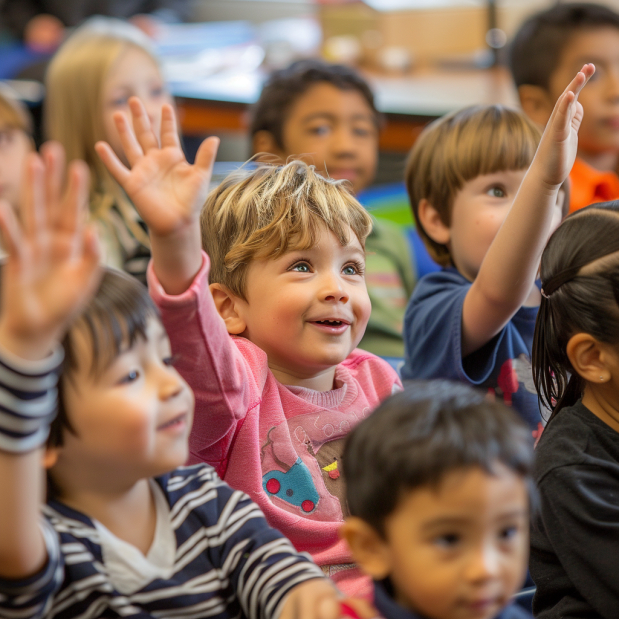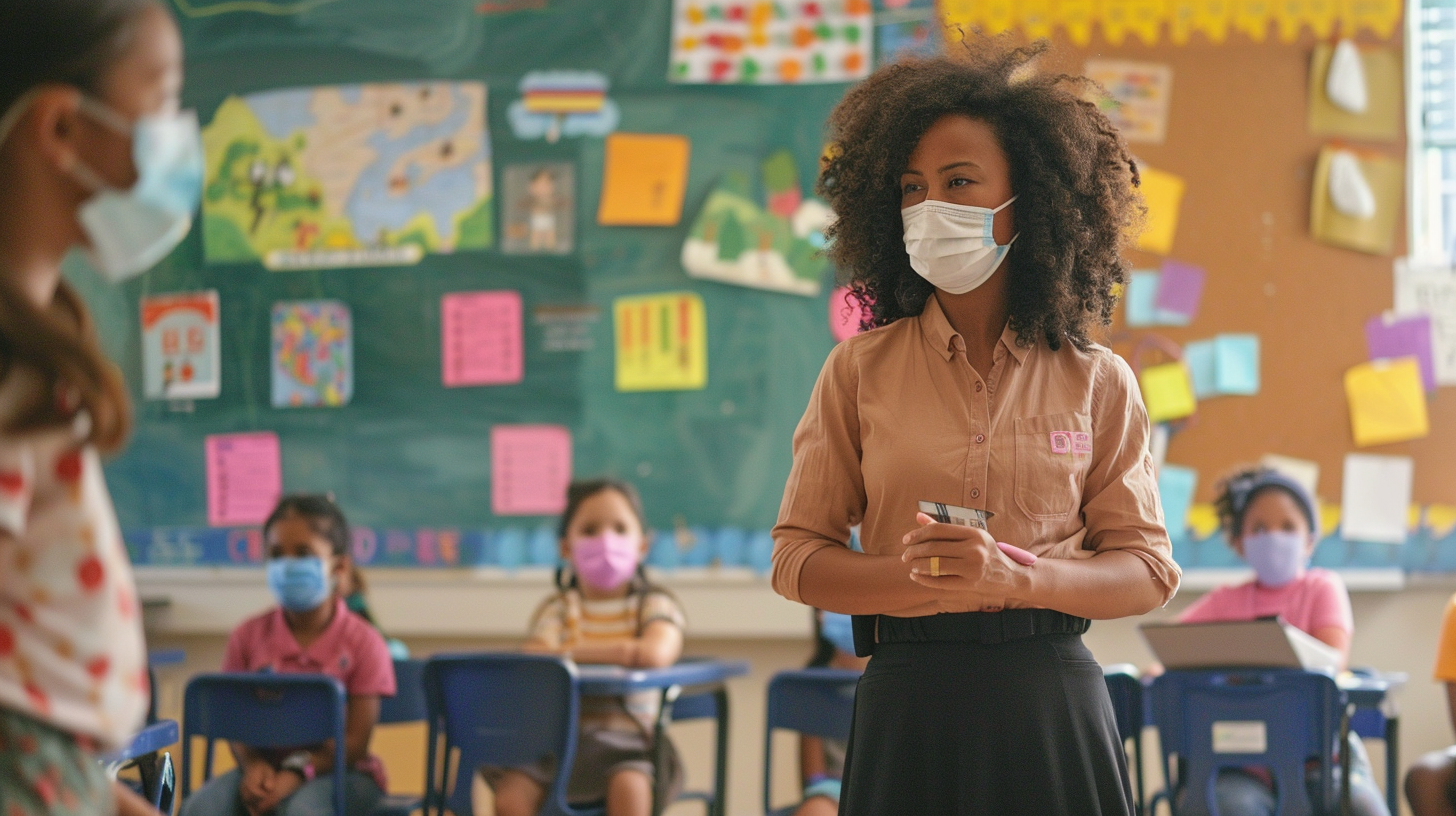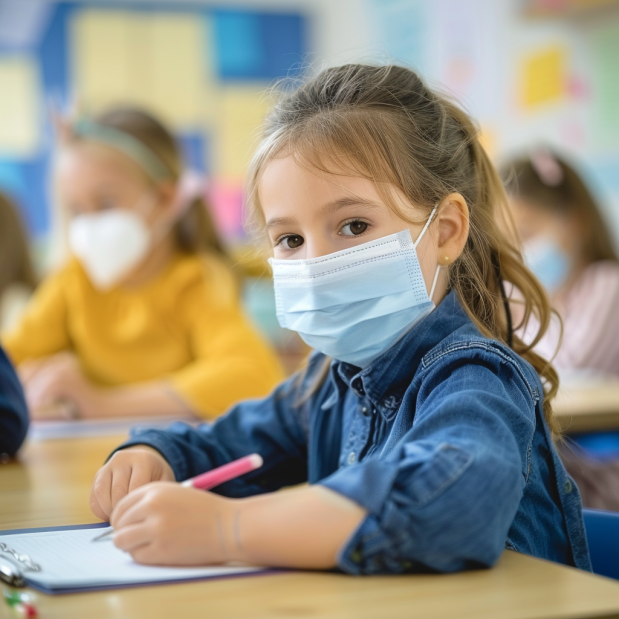COVID-19 Pandemic's Impact on Children's School Readiness
A study in the February 5, 2024, issue of JAMA Pediatrics confirms what the research director at the Mind-Eye Institute in Northbrook, Illinois warned about during the height of the COVID-19 pandemic – that the virus’ societal impact could negatively affect children’s school readiness and ability to learn.
“By causing closure of schools and forcing social isolation, the pandemic likely delayed development of some children’s visual processing skills and eye-ear coordination,” says Deborah Zelinsky, OD, founder of the Mind-Eye Institute and globally recognized for her studies of retinal processing.
In fact, as early as the spring of 2020, Dr. Zelinsky was advising parents to look for “cues and clues” indicating how well their child was reading, comprehending, and, in general, learning at home.
“Results of this cohort study suggest a significant worsening in kindergarten readiness during the COVID-19 pandemic compared with years before the pandemic.” -authors of JAMA Pediatrics report
“Children who have trouble with basic reading, cannot remember what they are reading or what is read to them, fumble when reading aloud, unnecessarily fidget, or exhibit difficulties focusing and concentrating could have underdeveloped visual skills, which require more than a simple eye examination to check the clarity of their eyesight. Their central and peripheral eyesight may not be interacting appropriately and/or their eyesight and listening abilities are uncoordinated or they have trouble visualizing,” Dr. Zelinsky says.
“Results of this cohort study suggest a significant worsening in kindergarten readiness during the COVID-19 pandemic compared with years before the pandemic,” write authors of the JAMA Pediatrics report. Other scientists, say these same researchers, have found “COVID-19 pandemic–associated declines in young children’s social-emotional development, communication, motor development, and attitudes toward learning.”
Unfortunately, taking learning out of the classroom setting and limiting it to interaction on a computer monitor hampered the development of visual systems for many children, Dr. Zelinsky states.
The Crucial Role of Visual Processing Skills and Eye-Ear Coordination

The Mind-Eye team emphasizes visual processing skills as essential to all aspects of learning. The term “visual processing” refers to the brain’s nearly instantaneous ability – consciously, subconsciously, and unconsciously – to take in external sensory signals (from eyesight, hearing, smell, taste, and touch), combine them with internal sensory signals, and then synthesize the information. This process allows a person to react and respond normally to his or her environment.
“Proper coordination of the senses develops through participation in the classroom.
"Students must use some of their many visual systems to maintain awareness of a teacher’s facial expressions, body posture, and movements, while at the same time looking at information presented on a screen or board and simultaneously listening and comprehending what a teacher is saying,” Dr. Zelinsky says.
“Our sensory systems are like musicians in an orchestra... but without a conductor synchronizing what they are playing, the result is simply noise." -Deborah Zelinsky, OD
But much of this sensory processing skill-building went missing when children were relegated to Zoom learning.
“The ability to shift gaze and attention from teacher to board to book and to notes during classes needs to be automated, synchronized and accomplished by ‘tuning out’ distractions, such as the whispering of nearby students or sounds of others shuffling papers. Many visual and auditory systems must be combined to achieve efficient school performance,” Dr. Zelinsky relates.
“Our sensory systems are like musicians in an orchestra. Each musician may be highly skilled in a specific instrument, but without a conductor synchronizing what they are playing, the result is simply noise – not music. The brain serves as our conductor, but oftentimes has not developed the necessary skills to meet school demands.”
Challenges of Remote Learning and Mask-Wearing on Development
Dr. Zelinsky also was one of the experts concerned about how mask-wearing during the pandemic might be retarding children’s visual and emotional development. She wondered then “what happens when human smiles remain hidden behind a strip of cloth? If babies primarily see faces partially hidden by masks, how can they become more self-aware of their own image and learn to interpret others’ emotions properly? Will they lag in understanding subtle visual cues that later become so necessary for reading, language development and the ability to interact in socially acceptable ways with their peers in school?”
Other experts concur.

A research report in a 2015 issue of the British Journal of Developmental Psychology indicates that “sensitivity to facial and vocal emotion is fundamental to children's social competence.” Some scientists also link “emotion recognition” to academic growth. Other studies, including one in the Journal of Natural Science, Biology, and Medicine, suggests that seeing others smile stimulates similar neurons in one’s own brain, resulting in an unconscious, automatic, smiling response.
Authors of a 2013 article in the publication Early Education and Development report that “emotional understanding skills are essential to the development of healthy social behavior in early childhood. These skills are related to important developmental outcomes such as school readiness, enhanced language, literacy, and mathematics skills in preschool.”
Meanwhile, the JAMA Pediatrics scientists indicate, “Most children younger than 5 years regularly see pediatric clinicians for well-child care and undergo screening for development and social determinants of health. Kindergarten readiness promotion has been proposed as a meaningful measure in pediatric care.”
Mind-Eye Institute's Approach to Enhancing Learning through Neuro-Optometric Rehabilitation
But Dr. Zelinsky takes that children’s health testing proposal a step further. She calls for mandatory preschool assessments to determine level of development of a child’s eye-ear coordination.
“Most current eyesight tests are based on 20/20 standards established in the 1800s,” according to Dr. Zelinsky. “Those tests evaluate central eyesight by requiring a patient to fixate conscious attention on non-moving targets – letters and numbers on an eye chart – but do not emphasize peripheral visual processing, which comprises an overwhelming percentage of a person’s visual awareness.”
An optometrist may determine that a child has 20/20 eyesight with or without glasses, and a hearing specialist conclude that this same child has normal hearing ability, but, too often, children are in school without parents knowing how well these sensory systems work together, she says.
The mission of the Mind-Eye Institute is to build better brains – not merely enhance clarity of central eyesight, Dr. Zelinsky states. “Using the advanced optometric science, combined with innovative mind-eye techniques, we can develop and solidify new brain pathways that enable easier reading and learning and help the academic success of children.”
The concept of Mind-Eye testing – versus conventional eye testing – applies neuro-optometric rehabilitation to prescribing on a very individualized basis in order to stimulate the retina. “The retina is composed of brain tissue and, by using ‘brain’ glasses to modify the way light passes through it, we can bring sensory systems into synchronization and alter a child’s – or an adult’s – awareness,” Dr. Zelinsky states.
About the Mind-Eye Institute
The Mind-Eye Institute, an internationally known optometric practice with an emphasis on neuro-optometric rehabilitation, is revolutionizing scientific understanding of how the retina serves as a two-way portal into the mind and body. The manner in which light disperses on the retina can impact brain function, thereby affecting a person’s awareness, movement and attention. Using optometric interventions to selectively stimulate light, the Mind-Eye Institute is helping patients redevelop visual skills during recovery from debilitating, life-altering symptoms of brain injuries and neurological disorders, such as concussions and stroke. The Institute also helps develop visual processing skills in autistic patients as well as people with learning problems, including ADHD.

